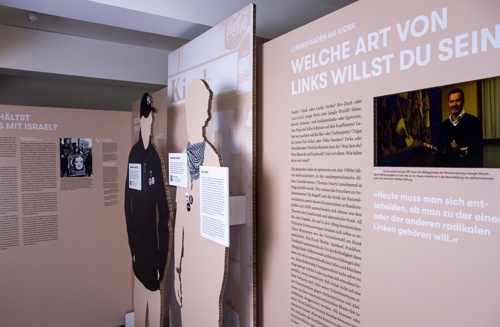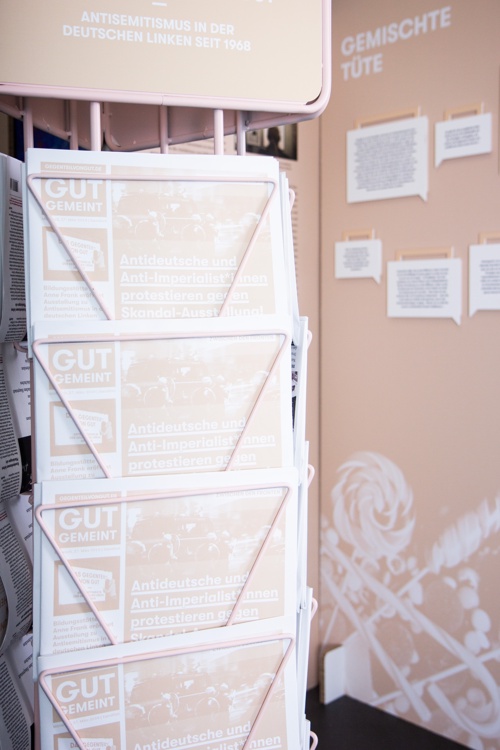Das Gegenteil von Gut
Literal translation: The opposite of good
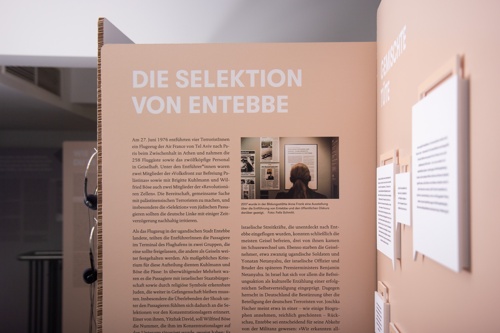
For the Anne Frank Educational Center (German: Bildungsstätte Anne Frank), we designed and realized this traveling exhibition on anti-Semitism in the left.
In 2023, we also transferred the traveling exhibition into digital space. On gegenteilvongut.de all the contents of the exhibition can be experienced in three-dimensional space.

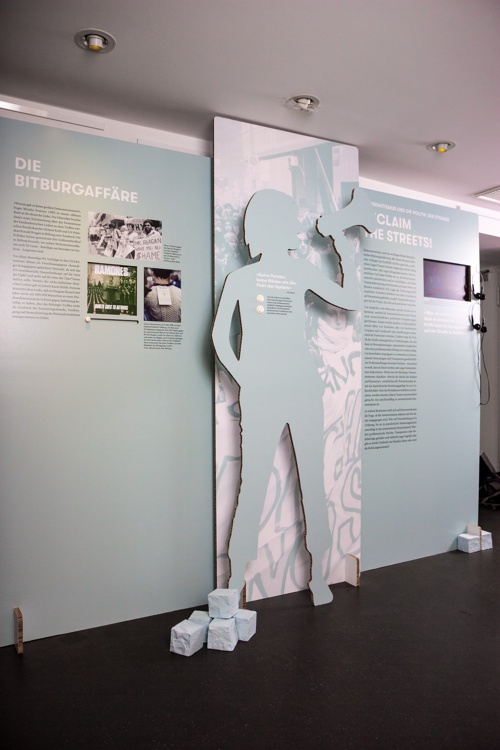
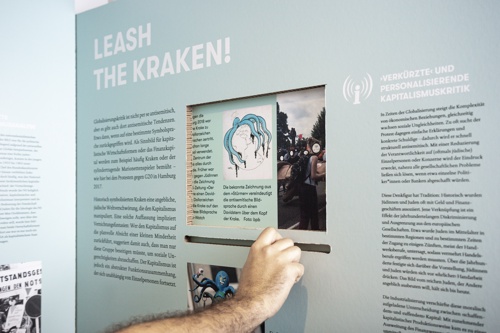
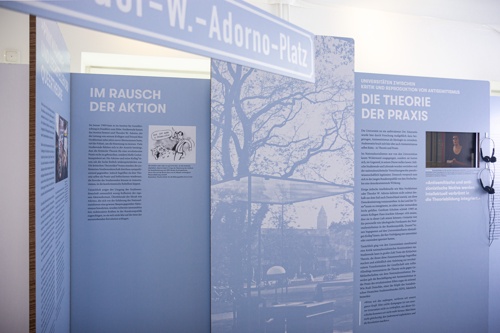

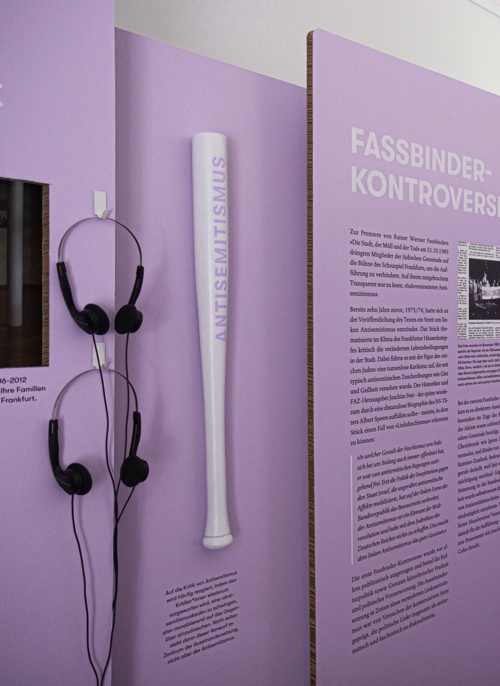
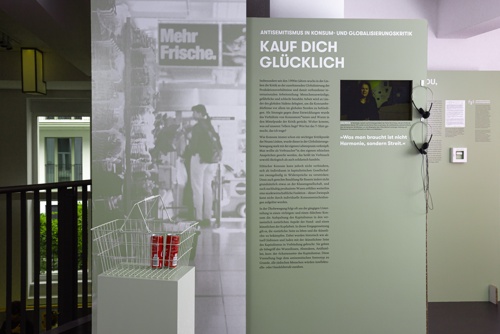

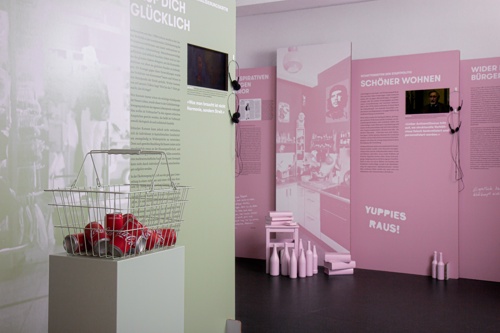

From the exhibition announcement:
Octopus symbolism at mass protests, calls for a boycott of Israel, and the dispute over the Palestinian scarf - the history of the political left in Germany has repeatedly been marked by moments in which anti-Semitic stereotypes were circulated and ignored or deeply divided the scene.
Anti-Semitism has been articulated again on the political left in Germany since the late 1960s: In the »critique« of Israel or the financial sector, anti-Semitic images actualize themselves under the pretext of supposedly being morally on the right side. In 1967, Jean Améry wrote: »One thing is certain: anti-Semitism, contained in anti-Israelism or anti-Zionism like the thunderstorm in the cloud, is in turn honorable.«
The exhibition »Das Gegenteil von gut« deals with this anti-Semitism in the political left in the present and the past. In doing so, left-wing political concerns are not to be delegitimized, but on the contrary strengthened, even where their own claim seems to have been lost, to fight for a society in which it is possible to be different without fear.
In order to connect to the everyday life of left-wing political actors, the exhibition is structured according to spaces in and on which radical left-wing critiques were practiced - on the street, in the apartment, at the kiosk, at the university, on the stage, and in the supermarket. Each of these spaces stands for a particular constellation of conflict, which is made concrete by means of historical and contemporary examples.
Interviews with seven actors of the political left, who were themselves confronted with anti-Semitism in the course of their biographies and have taken action against it, help to classify them: For example, Jutta Ditfurth talks about her confrontations with anti-globalization protests, Micha Brumlik about the Frankfurt housing struggle, Elli Kaminer-Zamberk about the stage cast of Fassbinder's play »Die Stadt, der Müll und der Tod« (The City, the Garbage and Death), and Julia König about anti-Semitism in academic contexts.
